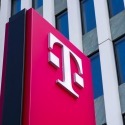
Huawei can seemingly scratch T-Mobile Netherlands off its shrinking list of European customers. Sold by Deutsche Telekom to private equity last year, the Dutch mobile operator had built a 4G network with Huawei long before the Chinese manufacturer became as unpalatable in parts of Europe as a week-old takeaway dinner. Naming Ericsson this week as the sole vendor of its 5G network, T-Mobile aims to clean Huawei out of its 4G infrastructure, too.
Geopolitically, the decision is not surprising. Ever since Donald Trump began leaning on US allies to ditch Chinese vendors, Huawei's position has looked shaky. Australia, Canada and the UK – members of the Five Eyes intelligence alliance with the US (the other being New Zealand) – have issued formal bans or restrictions. Sweden forbade its 5G license winners from using Chinese vendors. Sensing the geopolitical headwinds, operators in other European countries have been shifting away from Huawei and toward the Nordic alternatives of Ericsson and Nokia.
There was no hint of all this in T-Mobile's statement on the deal. Its public explanation for choosing Huawei's Swedish rival is that "Ericsson came out on top" during a competitive tender, based on quality, performance and price. "T-Mobile has entered into a long-term commitment with Ericsson for the provision of the mobile radio network for both 5G and the current 3G and 4G," said T-Mobile.
Runaway leader no more
Weighing up vendors is never easy from afar, but Ericsson does appear at least to have closed the gap on a Chinese company once considered the runaway leader on technical specifications and price. Under Börje Ekholm, its CEO since 2017, Ericsson has sold non-core assets, doubled down on 5G and restored profitability. Research-and-development spending has risen from 31.6 billion Swedish kronor (US$3.1 billion) in 2016 to SEK42.1 billion ($4.1 bllion) last year.
Huawei has also had to contend with US sanctions cutting it off from important chip technology. It can no longer buy semiconductors from Taiwan's TSMC and South Korea's Samsung, the world's two most advanced contract chipmakers. Sales at its smartphone division have already plummeted. In the absence of a Chinese foundry with TSMC's sophistication, Huawei has relied on stockpiles to remain competitive. These will eventually run out, and Huawei's argument that top-notch software can compensate for lower-end chips is unconvincing.
Figure 1:  (Source: T-Mobile Netherlands)
(Source: T-Mobile Netherlands)
The Netherlands held a 5G spectrum auction in mid-2020 but this did not include the important 3.5GHz frequencies used elsewhere in Europe. Delayed multiple times due to legal challenges (the band is shared with satellite players), a 3.5GHz auction is now scheduled for late next year. In the meantime, operators have deployed 5G in much lower spectrum bands while they await a 3.5GHz sale. T-Mobile was claiming to have reached 90% coverage as far back as October 2020.
Because mobile network equipment usually depreciates over a period of about seven years, the swap-out of 5G equipment at this stage would seem to entail additional expense. That said, T-Mobile does not appear to be under government pressure to meet any deadlines, as operators are in the UK. KPN, the Dutch incumbent, is counterintuitively moving from an Ericsson-provided mobile network to a Huawei one as T-Mobile goes the opposite way. Huawei might be acceptable to authorities provided it does not feature in the core, the sensitive control center of the network.
Want to know more about 5G? Check out our dedicated 5G content channel here on Light Reading.
As for T-Mobile's 3G and 4G infrastructure, this is probably due for replacement anyway. Ericsson, as the sole supplier, could feasibly provide multiband and single RAN equipment, supporting various generations of mobile technology on one platform. That is likely to be far more economical than maintaining two separate vendors across the same footprint. "Ericsson will be the main 5G supplier in the RAN replacing Huawei [in] the coming years," said a T-Mobile Netherlands spokesperson by email.
John Strand, CEO of an advisory firm called Strand Consult and an outspoken critic of China and Huawei, thinks T-Mobile could gain an advantage over KPN in business and public-sector circles, more concerned than average consumers about reliance on China. "KPN has historically been strong in government and business, but T-Mobile can basically go and say we can match KPN prices but send traffic to a non-Chinese network," he told Light Reading.
Despite the moves by T-Mobile and various other European operators, Huawei continues to be a major force in the region and still counts all the big telco groups as customers. Outside the UK, Vodafone is stripping Huawei out of the core but standing by it for radios. And Deutsche Telekom, T-Mobile's former owner, relies heavily on Huawei in Germany, Europe's largest economy. China's coziness with Russia after Vladimir Putin's invasion of Ukraine makes that Huawei relationship even more awkward than it already was.
Related posts:
— Iain Morris, International Editor, Light Reading
About the Author(s)
You May Also Like












